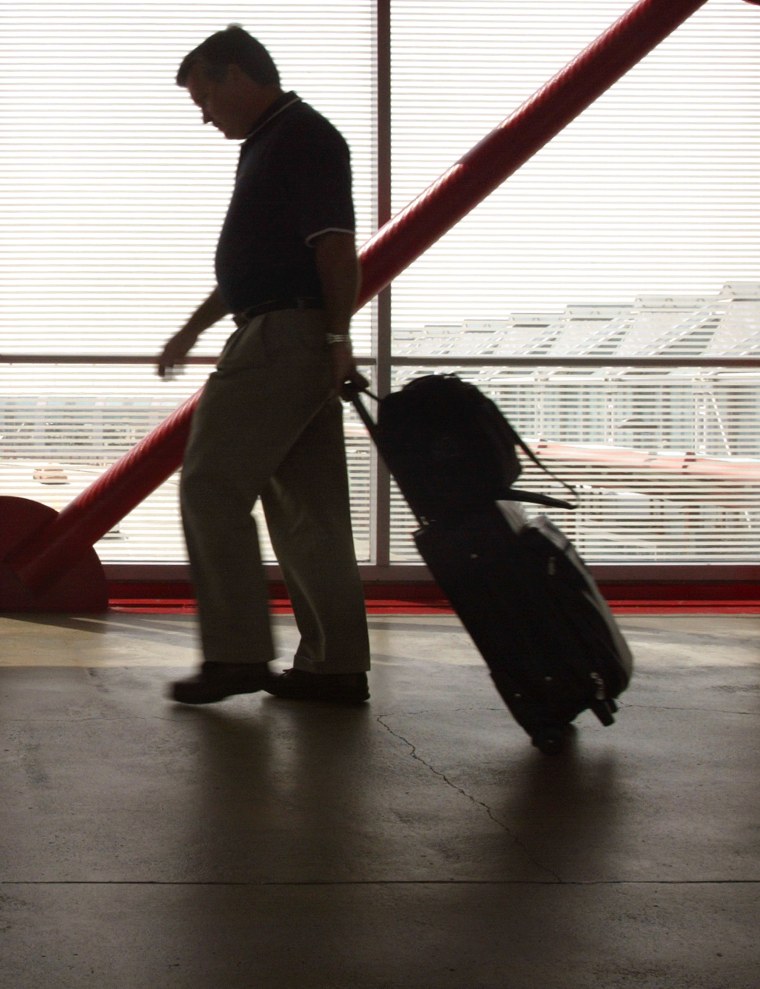The next time a weary corporate traveler gets a “Sorry, wrong number!” call at his hotel in the middle of the night, he might think back to how much—or whether—he tipped the bellman.
Still, in a world that's certain to stay uncertain, some things remain within our control. Unpleasant surprises, such as hotel staff retribution, an airplane seat near the toilets, crying babies or falling victim to a crime in a foreign city, can be avoided.
Get the best seat
Often, it begins at the time of booking a flight. To avoid sitting for hours near a busy bathroom or galley, travelers can consult SeatGuru.com (http://SeatGuru.com). It provides color-coded cabin configurations—Green-Good Seat, Yellow-Be Aware and Red-Poor Seat—for more than a dozen major carriers, including American Airlines, British Airways, Continental, Delta, JetBlue, Qantas, SAS, United and Virgin Atlantic.
Comprehensive information on Internet access, legroom and limitation of seat recline is adapted to specific types of equipment—Airbus A320, Boeing 767-500, MD-88, and the smaller Embraer 145 or Canadair Regional Jet typically used on short trips.
To insure an atmosphere more conducive to concentration during a long flight, a business class passenger on a Cathay Pacific Airbus A330 should avoid center seats 11D and G as well as 19D and G by the galley; also 12A and C, and 12H and K next to the lavatories, according to the site.
In the all-coach class, 34-passenger Northwest Saab 340A, Row 1 seats C and D, with extra leg room, get SeatGuru's green light, while those with limited-recline in Row 5, in front of the emergency exits are rated Poor.
Crying babies, weeping executives
Cost control is another crucial component of corporate travel today. Cheapflights.com (www.cheapflights.com) entered the U.S. market in 2003 after Cheapflights.co.uk established itself as one of Britain's top 10 travel Web sites. It recently announced the addition of 15,000 business class deals through partnerships with specialists such as Access Fares and 1800 Fly Europe, and low-cost carriers Spirit and AirTran.
While many airlines compete by lowering fares, not all cater to corporate travelers. Song, for example, is promoting organic food items for “Frequent Criers”—words that strike fear in the hearts of many bona fide Frequent Fliers.
“Song does not have a specific program targeted to business travelers, but makes all efforts to accommodate a special seating request,” a representative said. “There is a separate front section, if a business traveler wishes to be in a quieter area.”
Urban noises create problems for people, and so does crying, says Dr. Charles Goodstein, a professor of psychiatry at New York University Medical Center.
Some temporary crying by a child in a strange environment is normal, but when it is prolonged “maybe airlines have to be more alert that there are travelers who don't think they should have to put up with this,” Goodstein, a child and adolescent psychiatrist and psychoanalyst, said on the phone from his office in Tenafly, New Jersey.
It is incumbent on parents to find a way to soothe their children, he said. For flight crews, he suggests early intervention—offering assistance “within 5 minutes of crying.”
In the meantime, Goodstein recommends that business travelers use earphones to try to block out as much sound as they can for the remainder of the flight.
Tipping troubles
On arrival, an unwelcome "wake-up" call can be averted by being familiar with rules governing gratuities, which do vary from country to country. Guides to help determine the right tips for waiters, cabdrivers and porters around the world can be found at Web sites http://magellans.com and http://tramex.com, among others.
Tipping etiquette in U.S. hotels, in Brazil and across most of Europe and the Middle East suggests that a bellman get $1 per bag, in contrast to places such as Argentina, Hungary, Japan and New Zealand, where no tipping is the norm.
Safe travel tips are shown in a 3-minute video on flights inbound to London by Virgin Atlantic in conjunction with London Metropolitan Police. Practical advice that can be used when visiting any city includes safety and prevention practices, such as exercising caution when using ATM machines and protecting baggage in public places.
Business executives tend to live out of a suitcase, and prefer traveling light. Taking charge of their appearance—arriving wrinkle-free with clothes that fit the occasion and location—is made easier with advice excerpted from "Magellan's Passport to Compact Packing" by Jerry Camarillo Dunn at http://www.magellans.co.uk.
Some tips: To guard against dirt and wrinkles, pack shoes in shoe bags and roll trousers from the cuff upward. Choose a medium to dark solid color for main wardrobe pieces, take more tops than bottoms, and thin fabrics rather than bulky ones.
